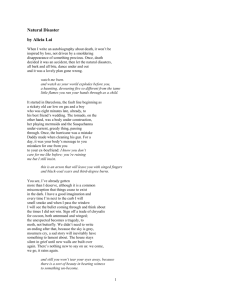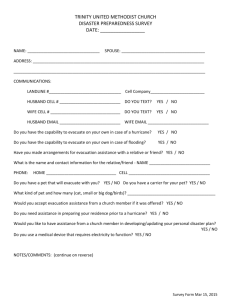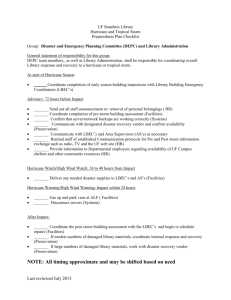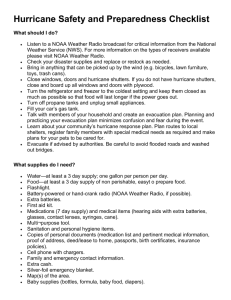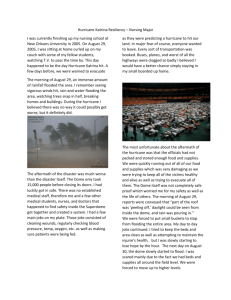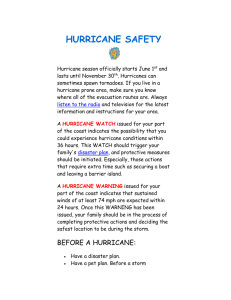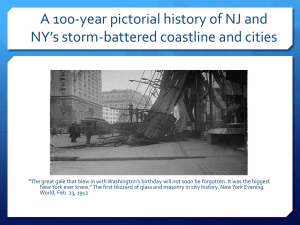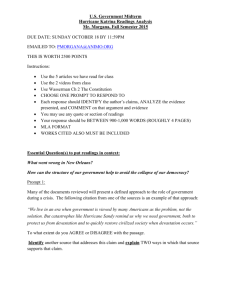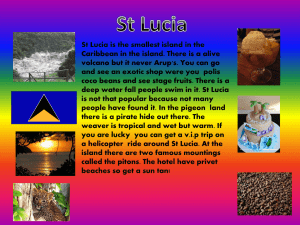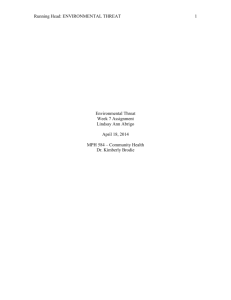Practical Activity
advertisement
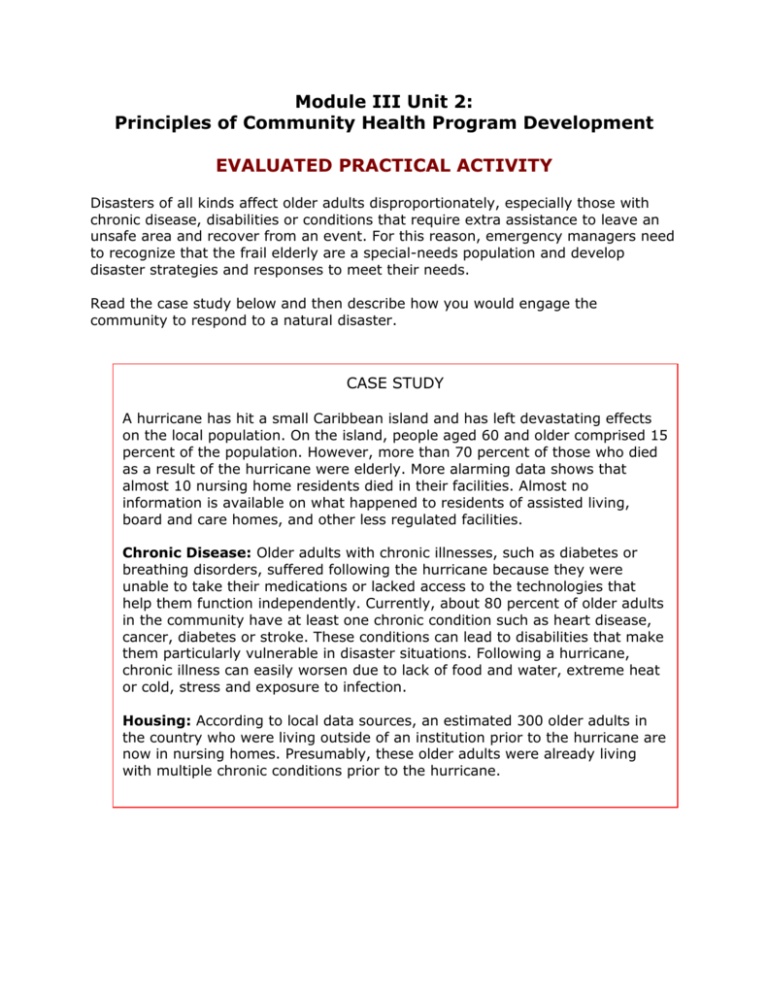
Module III Unit 2: Principles of Community Health Program Development EVALUATED PRACTICAL ACTIVITY Disasters of all kinds affect older adults disproportionately, especially those with chronic disease, disabilities or conditions that require extra assistance to leave an unsafe area and recover from an event. For this reason, emergency managers need to recognize that the frail elderly are a special-needs population and develop disaster strategies and responses to meet their needs. Read the case study below and then describe how you would engage the community to respond to a natural disaster. CASE STUDY A hurricane has hit a small Caribbean island and has left devastating effects on the local population. On the island, people aged 60 and older comprised 15 percent of the population. However, more than 70 percent of those who died as a result of the hurricane were elderly. More alarming data shows that almost 10 nursing home residents died in their facilities. Almost no information is available on what happened to residents of assisted living, board and care homes, and other less regulated facilities. Chronic Disease: Older adults with chronic illnesses, such as diabetes or breathing disorders, suffered following the hurricane because they were unable to take their medications or lacked access to the technologies that help them function independently. Currently, about 80 percent of older adults in the community have at least one chronic condition such as heart disease, cancer, diabetes or stroke. These conditions can lead to disabilities that make them particularly vulnerable in disaster situations. Following a hurricane, chronic illness can easily worsen due to lack of food and water, extreme heat or cold, stress and exposure to infection. Housing: According to local data sources, an estimated 300 older adults in the country who were living outside of an institution prior to the hurricane are now in nursing homes. Presumably, these older adults were already living with multiple chronic conditions prior to the hurricane. Risk of Trauma: Additionally, a lifetime of accumulated losses – such as deaths of family members and friends, declines in physical capabilities, losses of vital roles in the workplace and community, and reduced incomes, can make older adults more vulnerable to trauma during a disaster. Following this hurricane, an estimated 40 percent of evacuees in shelters might have had post-traumatic stress disorder. PTSD is characterized by sever anxiety, significant sleep problems, functional impairment and nervousness. Transportation: Many older adults were unable or unwilling to evacuate during a disaster. Some were unable to drive or do not own a care. Others live alone or in rural areas without public transportation. Even if older people live in areas with public transportation, some were unable to evacuate during the hurricane because their local transportation services were interrupted or suspended. Those residing in institutions were too frail to be evacuated quickly. Reluctance to Seek Assistance: Older adults are often slower to register for disaster assistance and might not complete the necessary paperwork to obtain assistance. Nutrition: Older adults face health risks from inadequate nutrition in the aftermath of a disaster. The Meals-Ready-to-Eat packages that are often provided following a disaster contain too much sodium, fat, and calories for many older adults, and have the potential to send some into glucose shock from too much sugar or raise their blood pressure from too much sodium. Evaluated Practical Activity Instructions Since this devastating hurricane, you have been contracted by your local health office to develop a new hurricane response plan that is community-based. After ensuring that advocates for older adults participate in an emergency planning session and using community-mapping data to identify areas where many older adults live, you give five recommendations to the ministry of health for community programs or plans that would decrease future hurricane impact on the health of older adults through community support and engagement. You may use the document “Guidelines for Mainstreaming the Needs of Older Persons in Disaster Situations in the Caribbean” as a resource in creating your five recommendations. Your final product should be 1 page long and contain 5 bullet points, each describing a recommendation for hurricane preparedness and response that involves the community. Please turn in your word document or PDF under the assignments tab in the virtual classroom. The due date for this assignment is July 30 at midnight.
